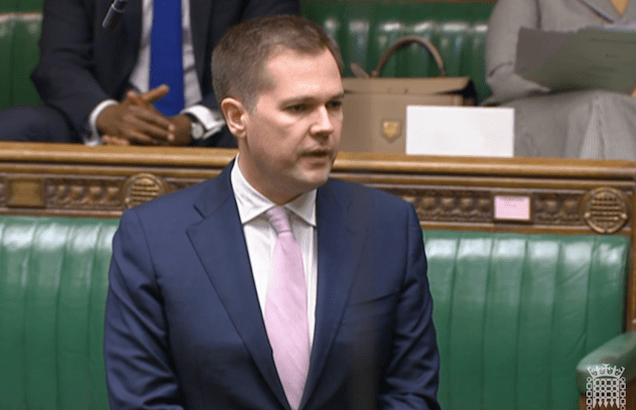Robert Jenrick has just given a furious speech against the Rwanda Bill in the Commons. It was a very well delivered speech, and highly persuasive. The former immigration minister not only took apart the flaws of the legislation as he saw them: he also explained why he had apparently adopted a much harder line while working in the Home Office. He said he had been to Dover to see ‘constituents whose homes have been broken into and whose lives have been ruined by illegal migrants’, and to Bournemouth, where an asylum seeker who posed as a child was convicted of murder.
Jenrick framed this Bill as being one of the greatest issues confronting MPs, not just today but in the 21st century
Jenrick framed this Bill as being one of the greatest issues confronting MPs, not just today but in the 21st century. He dismissed the provision in the Bill designed to prevent the European Court of Human Rights deferring removals as ‘sophistry’. He argued: ‘We are being asked to vote for a provision which it would be illegal to use.’ As he said this, James Cleverly and his Home Office colleagues furrowed their brows and whispered to one another on the front bench.
Jenrick continued: ‘The public are watching us. They expect us to fix this problem. So why would we not put into this Bill the strongest protections at our disposal?’ He then argued that the legislation was not ‘bad’. ‘This is not a bad Bill. But it is not the best Bill. I want this Bill to work… Will it work? That is all the public care about. They don’t care about Rwanda as a scheme. They care about stopping the boats.’
At the end of a speech like that, you’d expect Jenrick to say he was voting against. But he didn’t. He closed by saying that ‘this Bill could be so much better. Let’s make it better.’ Many Tory MPs I’ve spoken to this morning expect there to be more abstentions than rebels against. Jenrick seemed to be suggesting he would either be voting for the Bill at second reading to improve it later, or abstaining.
Jenrick was the first backbencher to speak after the opening exchanges between James Cleverly and Yvette Cooper. Both of their speeches were lengthy because of the number of interventions from backbenchers. Cooper’s attack was one we have heard a great deal before: what a Tory mess, Labour would do this better, and so on. Cleverly was focused more on trying to reassure colleagues: he told John Baron that while the measures were ‘within the framework of international law’, they were ‘novel’ and ‘very much pushing at the edge of the envelope’. It was an unusual boast for a Home Secretary to make, but this is an unusual piece of legislation, which hasn’t managed to please anyone. Cleverly had to seesaw between the different camps within his party, clarifying to Jeremy Wright that the Bill wasn’t parliament merely declaring itself in compliance with international law, but about the safety of Rwanda.
What was striking about the majority of the Tory interventions was the number of MPs who wanted to stand up and ask whether Labour had a plan. There had clearly been an operation to get loyal backbenchers into the chamber to attack Labour, to avoid the internal Tory circular firing squad. But these positive Tory interventions were quickly superseded by Jenrick’s speech.







Comments